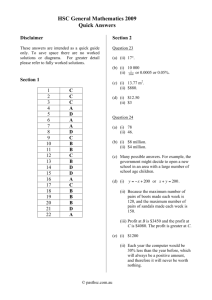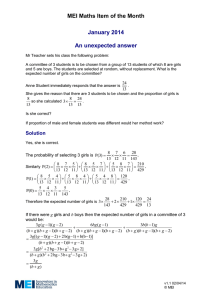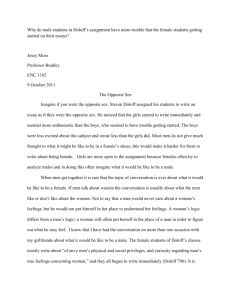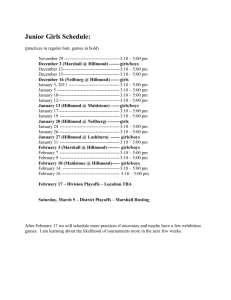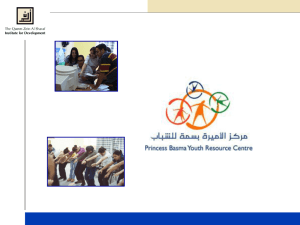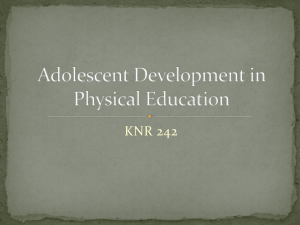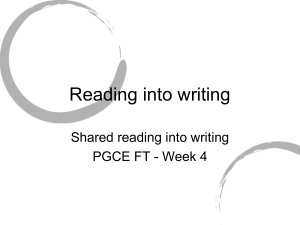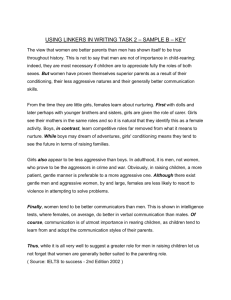Questions for improving teacher practice
advertisement
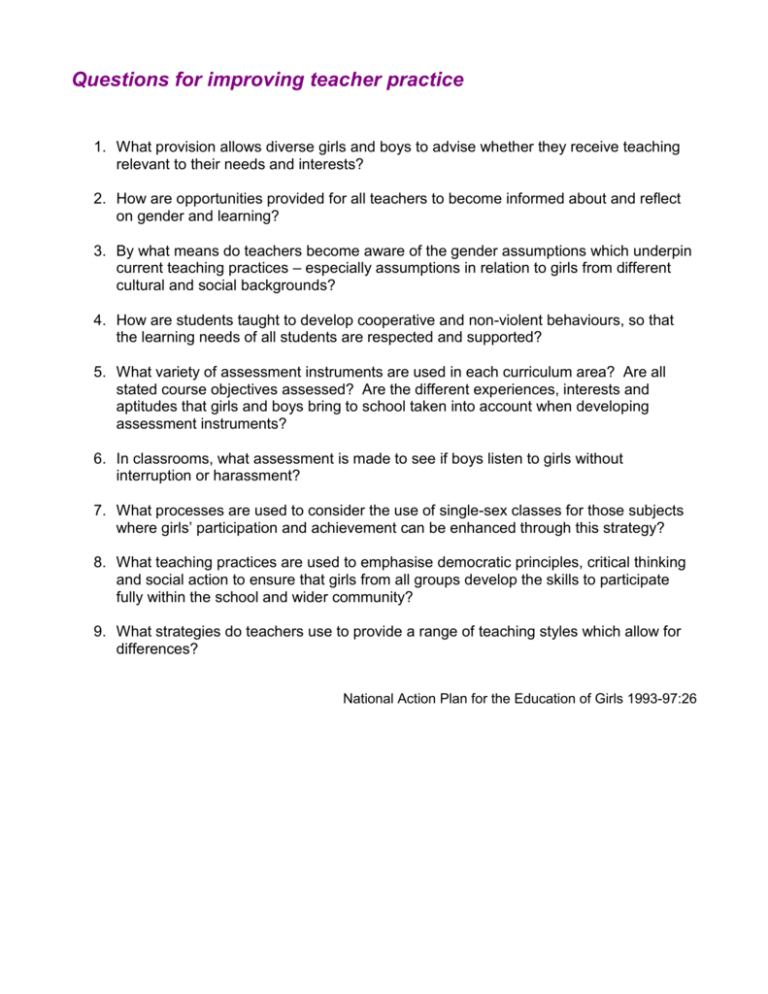
Questions for improving teacher practice 1. What provision allows diverse girls and boys to advise whether they receive teaching relevant to their needs and interests? 2. How are opportunities provided for all teachers to become informed about and reflect on gender and learning? 3. By what means do teachers become aware of the gender assumptions which underpin current teaching practices – especially assumptions in relation to girls from different cultural and social backgrounds? 4. How are students taught to develop cooperative and non-violent behaviours, so that the learning needs of all students are respected and supported? 5. What variety of assessment instruments are used in each curriculum area? Are all stated course objectives assessed? Are the different experiences, interests and aptitudes that girls and boys bring to school taken into account when developing assessment instruments? 6. In classrooms, what assessment is made to see if boys listen to girls without interruption or harassment? 7. What processes are used to consider the use of single-sex classes for those subjects where girls’ participation and achievement can be enhanced through this strategy? 8. What teaching practices are used to emphasise democratic principles, critical thinking and social action to ensure that girls from all groups develop the skills to participate fully within the school and wider community? 9. What strategies do teachers use to provide a range of teaching styles which allow for differences? National Action Plan for the Education of Girls 1993-97:26

